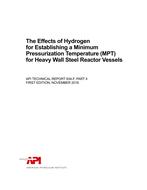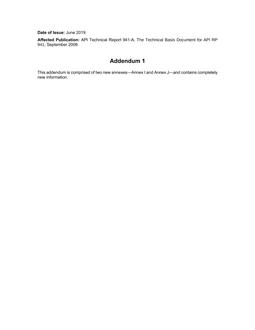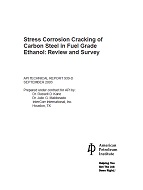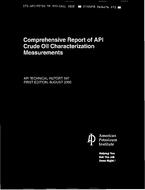Description
This standard outlines a process that an operator of a pipeline system can use to assess risks and make decisions about risks in operating a hazardous liquid pipeline in order to reduce both the number of incidents and the adverse effects of errors and incidents.
An integrity management program provides a means to improve the safety of pipeline systems and to allocate operator resources effectively to : identify and analyze actual and potential precursor events that can result in pipeline incidents; examine the likelihood and potential severity of pipeline incidents; provide a comprehensive and integrated means for examining and comparing the spectrum of risks and risk reduction activities available; provide a structured, easily communicated means for selecting and implementing risk reduction activities; and, establish and track systems performance with the goal of improving that performance.
This standard is intended for use by individuals and teams charged with planning, implementing and improving a pipeline integrity management program. Typically a team would include engineers, operating personnel and technicians or specialist with specific experience or expertise (corrosion, in-line inspection, right-of-way patrolling, etc.) Users of this standard should be familiar with the pipeline safety regulations (Title49 CFR Part 195), including the requirements for pipeline operations to have a written pipeline integrity program, and to conduct a baseline assessment and periodic reassessments of pipeline management integrity.
Product Details
- Edition:
- 1st
- Published:
- 11/01/2001
- Number of Pages:
- 86
- File Size:
- 1 file , 540 KB
- Product Code(s):
- D11601, D11601, D11601
- Note:
- This product is unavailable in Cuba, Iran, North Korea, Syria




